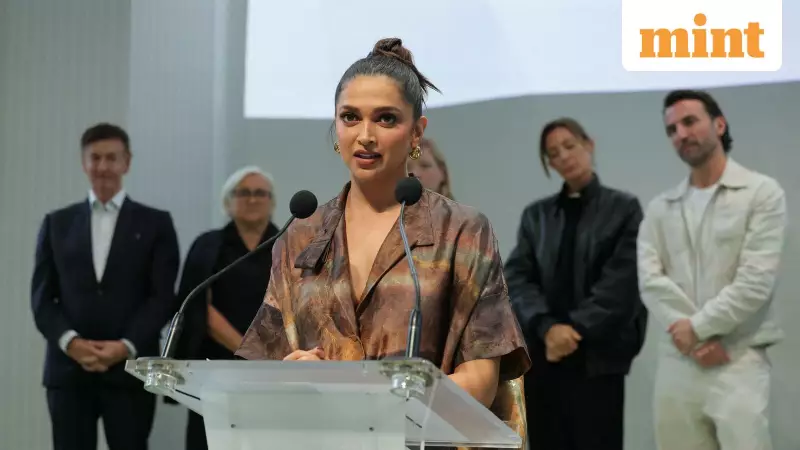
After more than ten years of leading major cinematic projects and delivering some of Hindi cinema's biggest commercial hits, Deepika Padukone is fundamentally rethinking what constitutes true success in her career.
Moving Beyond Box Office Milestones
In a revealing conversation with Harper's Bazaar, the acclaimed actor shared that traditional markers of stardom—including box office collections and lucrative contracts—no longer drive her professional decisions. Padukone explicitly stated that her focus has shifted away from financial benchmarks, whether they involve ₹100-crore or even ₹500-600 crore films.
The actress, who has consistently advocated for fair payment and reasonable working hours in the film industry, explained how her priorities have transformed significantly. "At this stage, it's not about that anymore. It's not about the ₹100-crore films, or even the ₹500–600 crore ones," she emphasized during the interview.
Choosing Authenticity Over Financial Gain
Recent industry reports indicate that Padukone made the conscious decision to exit two high-profile productions—Spirit and Kalki 2898 AD, both featuring Prabhas—when discussions about equitable compensation and eight-hour workdays failed to reach satisfactory conclusions.
Padukone clarified that her current career choices stem from a deep commitment to authenticity. "Anything that doesn't feel true to me doesn't cut it. Sometimes people offer a lot of money and think that's enough, but it isn't. And the reverse is also true—some projects may not be commercially big, but I believe in the people or the message, and I'll stand by it," she explained.
Empowering New Talent and Addressing Work Culture
Through her production company KA Productions, which backed the film Chhapaak, Padukone is increasingly drawn to nurturing emerging voices and compelling narratives rather than simply headlining every major project. "What excites me is empowering other talent. My team and I are now focused on enabling storytelling—supporting writers, directors, new producers. That feels meaningful to me now," she shared.
The actor also critiqued the film industry's problematic work culture, specifically calling out the normalization of excessive working hours. Padukone described the glorification of burnout as fundamentally misguided, stating that eight hours of work daily represents what the human body and mind can sustainably handle.
"We have normalised overworking. We mistake burnout for commitment. Eight hours of work a day is enough for the human body and mind. Only when you're healthy can you give your best. Bringing a burnt-out person back into the system helps no one," she told the publication.
Redefining Success in Bollywood
For one of India's highest-paid actors, this philosophical shift away from monetary measurements signals a broader commentary about sustainability within the entertainment business. Padukone's position reflects an evolving industry sentiment where long-term creative satisfaction and equitable labor practices are becoming as important as commercial scale and spectacle.
This recalibration of priorities from a top-tier Bollywood star suggests that the very definition of success in Indian cinema may be undergoing a significant transformation, with well-being and artistic integrity gaining prominence alongside traditional box office achievements.






